Of Accidental Leaders
In a recent article on NewAfrican, Samia Suluhu Hassan was described as an “Accidental President”. Before the unexpected death of her predecessor, John Magufuli on March 17, 2021, few would have predicted that she would be Tanzania’s first woman President.
Six years earlier, she set many tongues wagging when the ruling Chama Cha Mapinduzi (CCM) picked her as Magufuli’s running mate in the General Elections. A lot of eyebrows were also raised. Not that people doubted her abilities, only that many considered her to be way back of the queue of presidential aspirants.
Throughout history, most of the so-called accidental leaders, especially those whose rise to power could be attributed to their predecessors’ misfortune, faced a crisis of legitimacy.
Their fortunes, as good or bad leaders, depended on what happened in their first few days in office. They reacted very much like tortoises when faced with threats, real or imaginary. As such, the first reaction would be to return to their shells.
In most cases, the shell, instead of being a defense mechanism, could be used as an instrument of force deployed to the killing of opponents, muzzling of freedom of speech, and trampling on democratic rights.

The case of Joseph Stalin of the former Soviet Union is instructive. In the early 1920s, nobody gave him a chance of succeeding Vladimir Lenin. He was judged as unpolished, a bad public speaker lacking revolutionary credentials, and a native of Georgia to boot.
When Stalin eventually became the leader, accidentally, following Lenin’s death, his political rivals started ridiculing him. One of them, the Marxist theoretician Leon Trotsky; considered by many to be Lenin’s successor, said this of Stalin; “His political horizon is restricted, his theoretical equipment primitive….His ignorance of foreign languages compels him to follow the political life of other countries at second-hand.”
The rivalries between the two was bitter leading to the deadly division of two warring camps within the communist movement: the Stalinists and the Trotskyites.
In the end, Trotsky was assassinated in exile in Mexico by a Stalinist agent. Stalin was bent on consolidating his power and stop the ridicules and humiliation suffered at the hands of his arch-rival.
The Magufuli Accident
In a way, both Magufuli and Samia were/are accidental leaders.
There are two types of accidental leaders. First, those who become leaders because some misfortunes had befallen their predecessors. Second, those who vied for positions and, unexpectedly, won against all odds.
Magufuli fell into the second category. No serious political commentator expected him to win CCM nomination in 2015. Actually, after winning it, and becoming the president, he delighted in joking publicly that he was not serious when he decided to run.
Other male candidates in CCM; Edward Lowassa, Bernard Membe, Mark Mwandosya, and January Makamba seemed to have had more supporters within the party than Magufuli, but he emerged the winner.
He won because of the special circumstances of the time. In any other time, Magufuli would not have won the nomination.
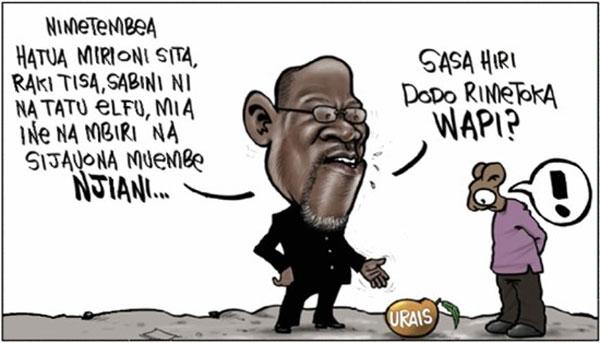
What Trotsky said of Stalin almost a century ago could be said of Magufuli word to word. Privately and openly, his opponents and analysts were saying that, although he could make things work, he was not sophisticated enough.
During a lunch I had with one of Magufuli’s opponents a day after winning the ticket in Dodoma, he told me that the CCM presidential candidate could not muster even ten votes from among National Executive Committee (NEC) members on the day of voting. In the end he won, nevertheless. More importantly, he won knowing he was not the popular choice.
So, what made Magufuli the leader he turned out to be?
Insecurity, I would say. Magufuli got to power with the lowest ever winning margin of a CCM presidential candidate at 57 percent of the votes cast. He knew he was not heavily supported within CCM, and the general population was moving towards the opposition. By nature, he was not one who tolerated competition.
A watershed in the Magufuli era came when the opposition Chama cha Demokrasia na Maendeleo (CHADEMA) unleashed their “Operation UKUTA”. The opposition party had declared the 2015 election null and void and vowed to organize nation-wide demonstrations until the Magufuli regime fell.
The declaration was made in the very early days of the Magufuli regime. Lacking strong support within and outside his own party, he felt threatened. But he knew, as Commander-In-Chief, he could always turn to the security forces. He called the opposition’s bluff.
CHADEMA called off the demonstrations. From then on, Magufuli realized that he could respond to any threat by the show of force.
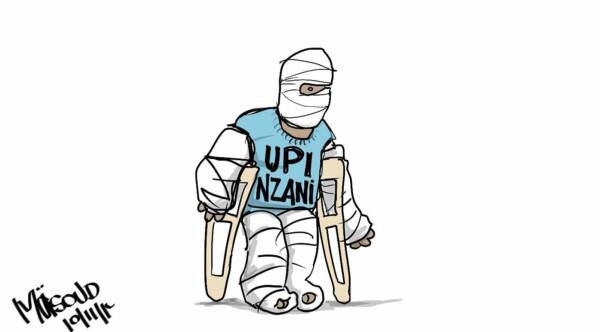
Unlike any other past Presidents, Magufuli started calling most of CCM’s NEC meetings at the State House, where his presidential authority could be displayed. Magufuli did not believe in the democratic niceties of differentiating between party and government. Such subtleties were beyond him.
Enter Samia Suluhu
Unlike Magufuli, Samia Suluhu Hassan falls into the first category of accidental leaders. But, like Magufuli, she has also faced legitimacy issues.
In her new position, Samia has two options; either to follow into the footsteps of her predecessor or chart her own way. The case of the United States of America is instructive. Lyndon B. Johnson followed into the footsteps of John F. Kennedy in the 1960s and made a successful accidental president. In the other direction, in the 1940s Harry S. Truman decided to out-perform Franklin D. Roosevelt by bombing Hiroshima and Nagasaki.
In Zanzibar, where Samia is coming from, there is another case of an accidental president in Aboud Jumbe Mwinyi. Jumbe succeeded Zanzibar’s first president, Abeid Amani Karume who ruled with an iron fist before he was assassinated in 1972.
When he succeeded Karume, Jumbe stopped the disappearances and killings of critics, real or imagined, and allowed for Zanzibar’s first republican Constitution.
He made Zanzibar more open and less intimidating. So, Samia is not short of examples to follow. She can decide to be a Lyndon Johnson, Joseph Stalin, Harry Truman, Aboud Jumbe or whoever she wants to become.
But to be what she wants to be will very much depend on what happens in her early days in office. The way her peers, both in CCM and outside, treat her will decide her fate — whether her “shell” will be her party and the security machinery or the people.
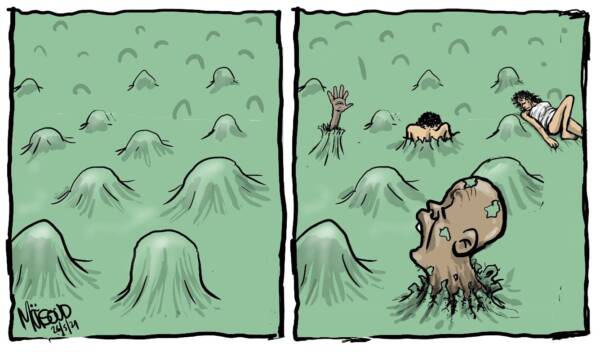
The Uhuru Kenyatta Way
To date, no foreign leader has played into Samia’s sentiments than Kenyan President, Uhuru Kenyatta. He came to Magufuli’s funeral and did something that no other political leader had done in the recent history of Tanzania.
Speaking at the state funeral, Uhuru stopped for few minutes when an Adhan (the Islamic call to prayer) was heard from a nearby mosque. Samia, hailing from a place where almost 99 percent of the population are Muslim, took note of that.
Immediately after his departure to Nairobi, he sent an envoy, Dr. Amina Mohamed, to the State House in Dar es Salaam to deliver a special message. And, when Samia made her maiden official foreign trip to Kenya, Uhuru serenaded her to the hilt.
The mutual respect and connection are evident in the videos of the handshake of the two leaders when Samia was saying goodbye to Uhuru before her departure for Dar es Salaam.
It reminded me of the special relationship between former US President, Ronald Reagan, and former British Prime Minister, Margaret Thatcher.
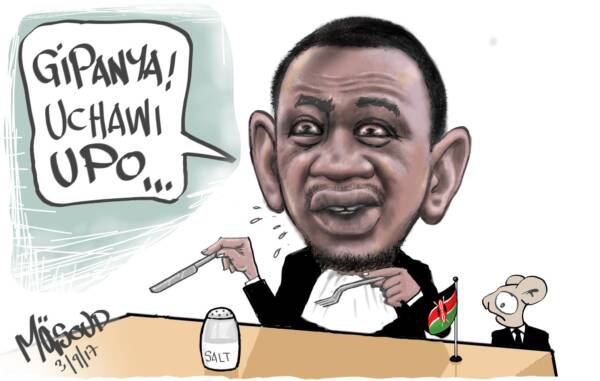
Enter Freeman Mbowe
Like Uhuru, Freeman Aikaeli Mbowe, leader of the main opposition party CHADEMA has a privileged background. He comes from a wealthy family, is of the same age as Samia; he is also urbane, and a good company over a cup of coffee.
If there is a politician in Tanzania who can easily connect with President Samia it is him.
Leading a major opposition party means that Mbowe – like what happened with Operation UKUTA, can do something that will make or break the politics of Tanzania in the next four if not nine years.
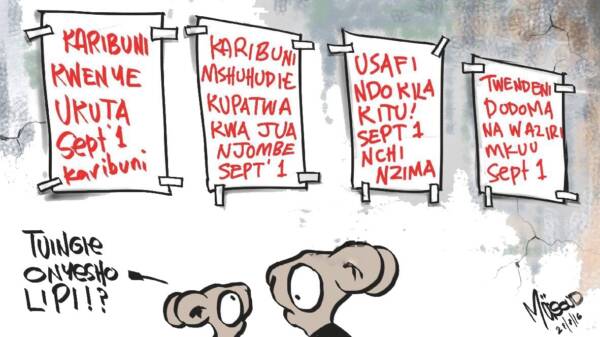
In The Old Regime and the Revolution, arguably the best book on the 1789 French Revolution, political theorist, Alexis de Tocqueville, wrote that “the most critical moment for bad governments is the one which witnesses their first steps toward reforms.” He further noted that a “sovereign who seeks to relieve his subjects after a long period of oppression is lost, unless he be a man of great genius.”
In other words, the most dangerous time for a regime is after the ouster of a strongman (dictator). As such, when a new leader comes in wanting to change too much after the death or ouster of a strongman, the regime will most likely crumble. Unless the new leader exhibits great ingenuity.
Samia’s allies within CCM will surely remind her about that piece of information. They will also remind her that Ethiopia’s Abiy Ahmed, after trying so hard to sanitize his country’s politics, is now overwhelmed with the events in the Tigray region.
So, Mbowe seems to be the ‘man of the hour’ to show Samia that it can actually be done the other way round. That you can go the right way and be a successful leader as well.
At present, one cannot but notice that Samia is trying to correct the wrongs done by the Magufuli regime. She has already changed the much-hated Director of Public Prosecution (DPP), Biswalo Mganga, and has suspended the feared Hai District Commissioner (DC), Lengai Ole Sabaya, who is now under arrest facing criminal charges.
If her efforts will not be appreciated by the opposition and is ridiculed, most likely she will return to her shell – as is often the habit of accidental leaders.

Mbowe is seen as the ‘good guy’ of the Tanzanian opposition. But at this moment, the activist element within CHADEMA is gaining the upper hand. If this momentum continues, perhaps ‘good guys’ like him will lose out to be replaced by the more ‘militant’ elements.
CHADEMA cannot afford to treat Samia as if she is a Magufuli clone because she is not. To get what they can get under the circumstances, CHADEMA and Mbowe may wish to emulate Kenya’s Uhuru Kenyatta.
The militant posturing and the accusing finger could be replaced with realpolitik – in making sure that the country can benefit the most from the current situation. Mbowe the man, not CHADEMA’s chairperson, is the best bet on how his party can capitalize on the situation.
By most accounts, Samia is on the right course. As Tanzania’s veteran journalist, Jenerali Ulimwengu, commented in his weekly column on The EastAfrican.
“President Samia must know that her people are applauding her for her bold moves to ‘demagufulify’ Tanzania. She should gather more courage and get more people in her corner to unearth and sweep away the disco dancers she has inherited. And, all patriots should support her”.
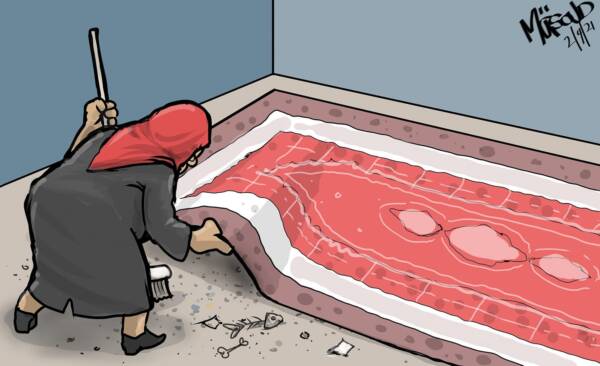
For the good of CHADEMA and the opposition in Tanzania, Mbowe, as a patriot, could as well heed Jenerali’s advice.
Mbowe has all the tools. He just needs to utilize them rightly.
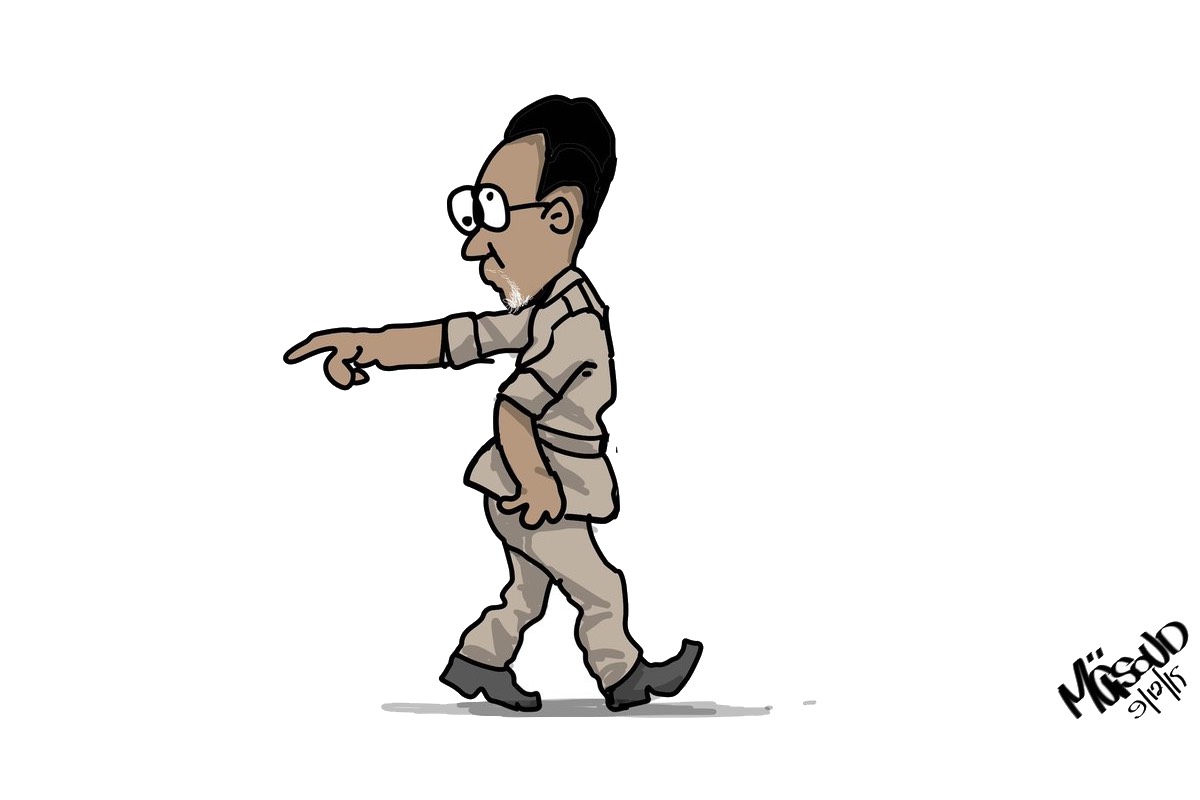
Eze, ukiandika analysis zako kwa Kiswahili zinakuwa “nondo” zaidi kuliko ukiandika kwa Kingereza 😂..
So many interesting angles in this article. Food for thought. Great article.
It is time for change, when some one does good let him or her be applauded , when some does bad let him or her critisized. More congratulations to SSH , may almighty God grant her more wisdom to lead the country in a right way🙏. Thank you to you journalist for good message for we Tanzanians
Andiko zuri Eze. Hopefully, Mbowe ataliona na kukupa mwaliko wa kahawa for more talks.
Very well written Ezekiel.
The only part I disagree with you is when you label those calling for accountability from CHADEMA as militant. We can not simply overlook the fact that Samia’s presidency is a product of grave HR violations in 2020 and the nation indeed needs to heal and reconcile as Samia aptly uttered at her inauguration. Unless she makes the first move towards reconciliation no one else but her can be blamed for how her term turns out whether Freeman was a good guy or bad guy.
Kudos for penning the piece!
Well put my man.
Well, well,,,,, I wonder! I am now asking myself: In Africa does the presidency make the person or does the person make the presidency? It is a pity that since the introduction of multi-party politics in Tanzania our analyses are so personalized on who is or is to be the incumbent president that we ignore the African contextual niche that Tanzania is now losing! I mean the liberation movement! Whether from the ruling party or from the opposition party, a Tanzanian president is really a president if he/she continues Tanzania’s commitment to Africa, namely the total liberation of Africa. Mwalimu Nyerere did his part of ensuring political liberation of Africa, so the next step is economic liberation. Is this what Mama Samia or Kamanda Mbowe after? Mama Samia is trying to be a political entrepreneur, while Kamanda Mbowe is an entrepreneurial politician!
Is this the kind of leadership Tanzania and Africa needs to take us to next level of liberation in Africa? The deadline of Vision 2025 will tell!!!
Classmate. This is a great article. Thank you!
Great work from a great man. Keep it up Eze.
Informative. Kudos for a great article.
Finished.
A couple of notes. Mbowe spent close to eight months in jail on trumped up charges. It is the darling President Samia’s administration which charged him for terrorism (not Magufuli, who never stooped to this level). The article headlines Mbowe but barely discusses him, there’s more Magufuli and Samia.